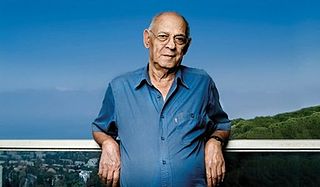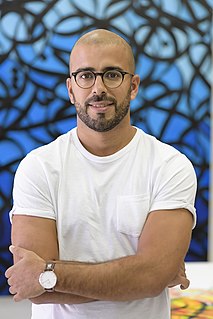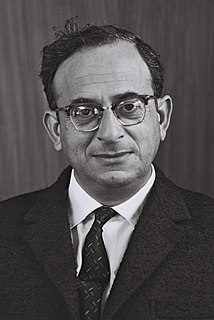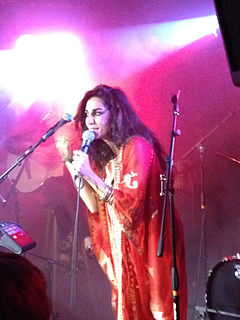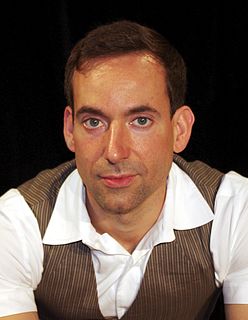Ein Zitat von Sami Michael
Beim Schreiben passiert es mir manchmal, dass ich ein Wort suche; So boshaft es auch ist, es erscheint auf Englisch, es erscheint auf Arabisch, weigert sich aber, auf Hebräisch zu kommen. Bis zu einem gewissen Grad habe ich mein Hebräisch gelernt. Zweifellos ist der Einfluss des Arabischen vorherrschend, meine Syntax ist fast arabisch.
Verwandte Zitate
Ich arbeite auf Hebräisch. Hebräisch ist stark von anderen Sprachen inspiriert. Nicht jetzt, in den letzten dreitausend Jahren wurde das Hebräische von alten semitischen Sprachen durchdrungen und befruchtet – vom Aramäischen, vom Griechischen, vom Lateinischen, vom Arabischen, vom Jiddischen, vom Latino, vom Deutschen, vom Russischen, vom Englischen, ich könnte weiter und weiter machen. Es ist dem Englischen sehr ähnlich. Die englische Sprache übernahm viele, viele Befruchtungen, viele, viele Gene aus anderen Sprachen, aus Fremdsprachen – Latein, Französisch, nordische Sprachen, Deutsch, skandinavische Sprachen. Jede Sprache hat Einflüsse und ist ein Einfluss.
Es gibt einen großen Unterschied zwischen der arabischen und der westlichen Tonleiter. Einer verwendet das Vierteltonsystem, der andere nicht. Damit ich echte arabische Melodien komponieren kann, bräuchte ich eine arabische Tastatur, und ich habe keine. Also musste ich arabeske Melodien komponieren.
Ohne das Erlernen der Sprache konnte ich nichts über meine Kultur und meine Geschichte erfahren, also begann ich, Arabisch zu lernen – Lesen, Schreiben. Davor habe ich Arabisch gesprochen, allerdings tunesisch-arabischen Dialekt. Schritt für Schritt entdeckte ich die Kalligraphie für mich. Ich habe schon früher gemalt und die Kalligraphie einfach in meine Kunstwerke integriert. So begann alles. Das Lustige ist die Tatsache, dass ich mich durch die Rückkehr zu meinen Wurzeln französisch fühlte.
Nicht jetzt, in den letzten dreitausend Jahren wurde das Hebräische von alten semitischen Sprachen durchdrungen und befruchtet – vom Aramäischen, vom Griechischen, vom Lateinischen, vom Arabischen, vom Jiddischen, vom Latino, vom Deutschen, vom Russischen, vom Englischen, ich könnte weiter und weiter machen. Es ist dem Englischen sehr ähnlich.
Das Schild war auf Arabisch und Englisch aufgesprüht, wahrscheinlich bei einem Versuch des Bauern, seine Waren auf dem Markt zu verkaufen. Die Engländer lesen: Termine-bester Preis. Kalte Bebsi. „Bebsi?“ Ich fragte. „Pepsi“, sagte Walt. „Ich habe im Internet davon gelesen. Auf Arabisch gibt es kein ‚p‘. Hier nennen alle die Limonade Bebsi.“ „Also musst du Bebsi bei deiner Bizza haben?“ „Brüchig.
Manchmal denke ich auf Arabisch, aber wenn ich schreibe, ist alles auf Englisch. Und ich versuche nicht, mein Englisch arabischer klingen zu lassen, weil es falsch wäre – ich stelle mir vor, wie Melanie Griffith versucht, in „Shining Through“ einen deutschen Akzent zu setzen. Es würde einfach nicht funktionieren. Aber die Sprache in meinem Kopf ist eine bestimmte Art von Englisch. Es ist nicht gerade amerikanisch, nicht gerade britisch. Denn alles wird durch mich, durch meine Erfahrung gefiltert. Ich bin Libanese, aber nicht so sehr. Amerikanisch, aber nicht so sehr. Schwul, aber nicht so sehr. Das Einzige, worüber ich wirklich sicher bin, ist, dass ich unter 1,70 m groß bin.
